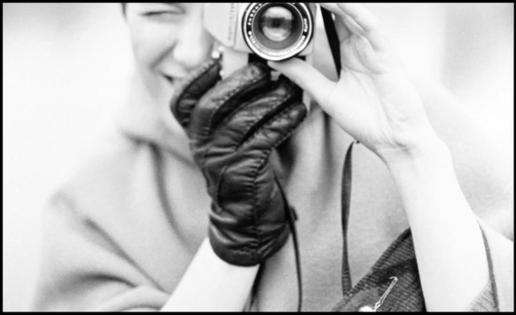'A Photographic Memory' review: A beautiful search for a long-lost parent, in words and pictures
Published in Entertainment News
“So many cameras.” Unusual in the pre-digital age, before rampant cellphone camera chronicles of everyone’s lives changed our visual landscape forever. This is what photographer and filmmaker Rachel Elizabeth Seed remembers of her childhood in “A Photographic Memory,” a supple nonfiction triumph.
Seed’s film pieces together an idea of a vanished loved one, from inchoate fragments of loss unique to those who never really knew a parent. The filmmaker’s mother, Sheila Turner Seed, was a remarkable, adventurous spirit and an accomplished global photographer, writer, interviewer and Chicago native. She died suddenly, of a cerebral hemorrhage, in 1979. She was 42. Daughter Rachel was 18 months old.
There were photographs, of course, many taken by Seed’s father, British photographer Brian Seed, who sold stock images featuring young Rachel as a frequent camera subject. She was just an everygirl in those photos, at a birthday party, or playing with friends on the sidewalk, or twirling around the house. It was, as director, co-writer and co-editor Seed says in “A Photographic Memory,” a false front of normalcy.
In 2008, well into adulthood, Seed discovered a stash of reel-to-reel audiotapes — hours and hours of interviews her mother conducted in the early 1970s with 10 celebrated photographers, including Henri Cartier-Bresson. This was a complicated emotional lifeline: the sound of her mother’s voice, at long last.
Seed, who followed her parents’ career paths as a photographer, also discovered a trove of her mother’s own photographs, revealing a distinctive, clear-eyed aesthetic and a nomadic itch. Turner Seed, as one of her friends and colleagues interviewed for “A Photographic Memory” phrases it, wasn’t a workaholic, exactly. She was a “lifeaholic,” living, traveling, striving for the fullest possible existence.
Her recorded conversations with Cartier-Bresson, Gordon Parks and others, and daughter Seed’s own interviews decades later with many of the same people, become a beguiling whole in “A Photographic Memory.” Turner Seed’s interviews served as the basis for the popular eight-part audiovisual educational project “Images of Man.” From this wellspring, Seed’s documentary took shape, though it took a full 16 years to come to fruition.
The delicately woven final version, made with co-writer and lead editor Christopher Stoudt, devotes precisely the right amount of screen time to Seed’s own perspective and life circumstances. It’s a movie about how we remember, and how photographs and audio recordings can answer questions, though never fully, and always open to interpretation.
There are, however, remnants of Turner Seed’s life that her daughter shares with us in this film that are wonderfully direct. Some are ordinary journal entries that turn out to be succinctly extraordinary in their brevity. At one point, teenage Turner Seed wrote in her journal: “Mom told me I should marry him. How can she play with my life that way?”
Without playing with anyone’s life, “A Photographic Memory” makes beautiful sense of the connections between mother and daughter, work and love and other mysteries.
———
'A PHOTOGRAPHIC MEMORY'
3.5 stars (out of 4)
No MPA rating (brief partial nudity)
Running time: 1:25
How to watch: Now in theaters
———
©2025 Chicago Tribune. Visit chicagotribune.com. Distributed by Tribune Content Agency, LLC.













Comments